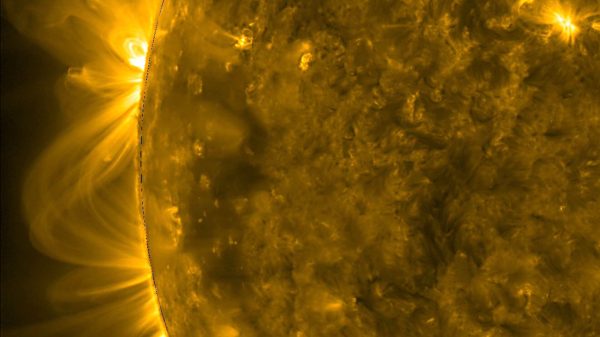
MOSCOW, March 16, Tatyana Pichugina.Climatologists have clarified when the Arctic Ocean will be completely free of ice. Judging by new data, the turning point will come sooner than expected. How this threatens the planet is in the material .
Frightening forecasts about an ice-free Arctic
Several years ago, British scientist Peter Wadhams published the book “Farewell to Ice.” An experienced polar explorer, who made fifty expeditions to the Arctic, proved that the climate is changing catastrophically quickly.
“In the next two years in the summer, the Arctic will be free of ice. You will be able to cross the North Pole by ship,” he said in interview with The Guardian newspaper in 2016.
Wadhams' predictions did not come true, and his colleagues accused him of alarmism. Models from those years indicated that the first ice-free days in the Arctic would come by mid-century. However, in recent years they have wanted to shift the deadlines to the left. Thus, recently scientists from South Korea and Canada stated that this should be expected by 2030.
“Ice-free Arctic Ocean” is how the transition from the “white” to the “blue” Arctic is often called in the literature.
“But this is just a journalistic term to attract attention,” explains climatologist, academician Vladimir Semenov from the A. M. Obukhov Institute of Atmospheric Physics of the Russian Academy of Sciences and the Institute of Geography of the Russian Academy of Sciences. “The Arctic will not be permanently free from sea ice. In winter it will remain under any conditions, unless the global temperature rises by ten degrees or more, like 80 million years ago. In the foreseeable future, this does not threaten us.»
In fact, we are talking about the fact that there will be minimal sea ice left in the ocean — less than one million square kilometers.
«In the summer “Perhaps sea ice will temporarily melt for a month or two in the central part of the North Pole,” the researcher clarifies.
The thickest multi-year ice, the thickness of which reaches more than six meters, is in the Canadian Arctic archipelago. They do not melt all year round, remaining even in the warmest month — September.
“But over time, the ice may disappear there too,” says Academician Semenov.
Point of no return
According to new data published in the journal Nature Reviews Earth & Environment, the Arctic will become ice-free ten years earlier than predicted.
The authors analyzed all climate models that formed the basis of the Sixth Assessment Report of the Intergovernmental Panel on Climate Change, published in 2021. Modeling such processes is difficult — you need to take into account the influence of atmospheric and ocean currents, heat transfer between these systems, and a lot of external factors. Therefore, the spread of forecasts is quite large. Nevertheless, scientists are inclined to believe that for the first time, ice in the Arctic will disappear before the end of the decade—by 2030.
Regular ice-free periods in the Arctic will be established between 2035 and 2067 if anthropogenic pressure on the atmosphere remains strong, the researchers write.
Where is hype, and where is accuracy
“Judging by current conditions, it is completely impossible that this will happen in the coming decades,” says Vladimir Semenov. “On average, about three million square kilometers of ice remain per year; it will not be able to melt so quickly. Moreover, there are no prerequisites. Until now The record for minimum sea ice in September 2012 has not been updated.»
Discussions around the melting of the Arctic are not unfounded: temperatures there are rising faster than in other parts of the planet. This phenomenon is called Arctic amplification, the causes and mechanisms of which are not fully established.
Over the past 40 years, the area of ice cover has decreased from seven to four million square kilometers, which is comparable to the territory of India.
«Since 2005, sea ice has been disappearing twice as fast as at the end of the 20th century,» notes academician Semenov.
The transition from the permanently frozen Arctic to ice-free periods marks a new climatic stage. The last time this happened was 80 million years ago. This will greatly affect the ecology of the planet. The absence of ice cover over large parts of the Arctic Ocean will reduce albedo (the ability of a surface to reflect the sun's rays) and change the radiation balance, which in turn will increase the greenhouse effect. Once again, the Arctic will suffer the most.
Open water will increase coastal erosion, leading to the destruction of populated areas. The existence of animals whose life cycles depend on sea ice — seals, polar bears, killer whales and many others — will be threatened. Warming Arctic waters will increase the proliferation of algae and plankton, which will attract southern fish. For the region's economy, the absence of ice will be a definite plus. The same cannot be said about the environment.



















































Свежие комментарии